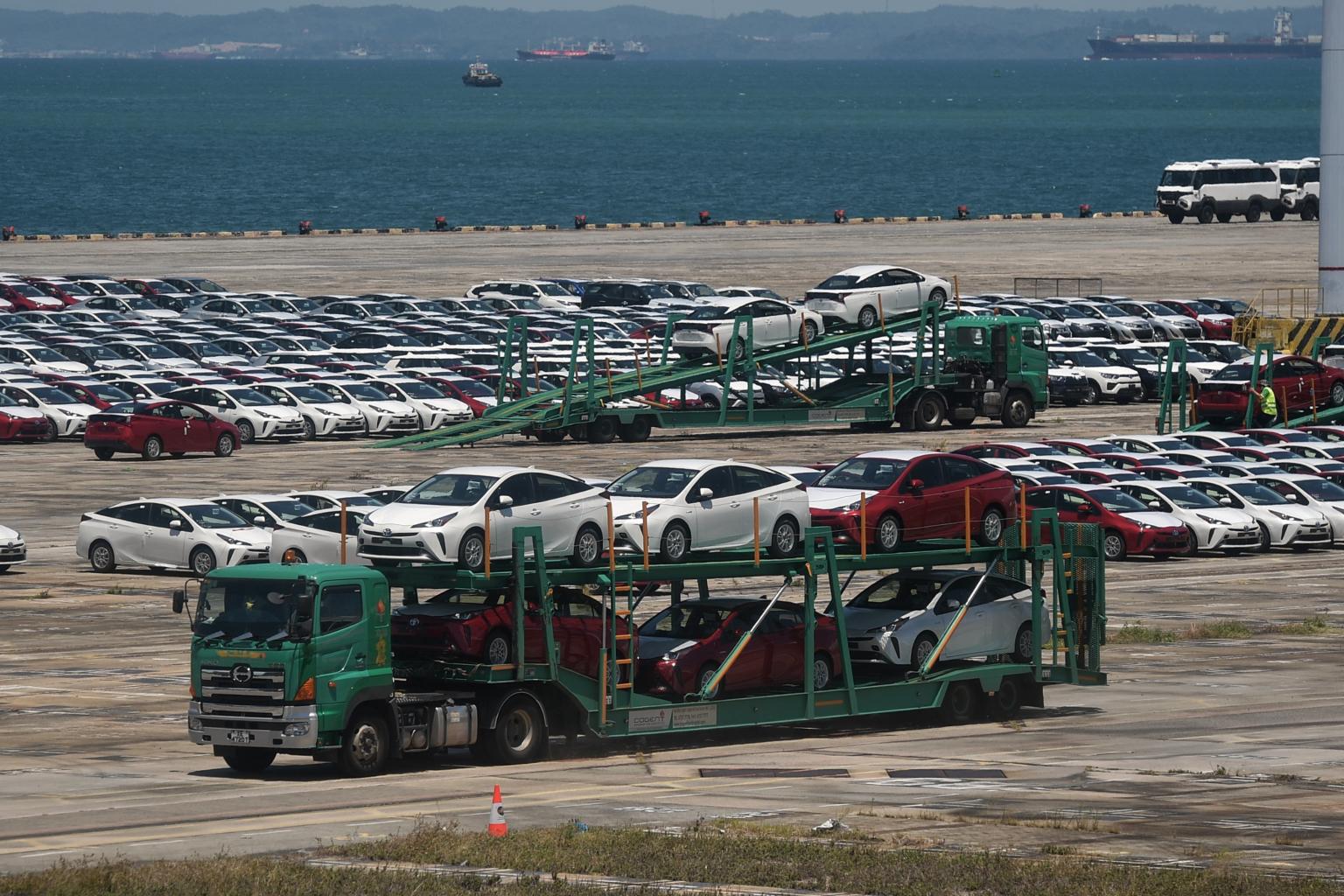COVID-19 SPECIAL
Coronavirus: Motor, transport firms face bigger blow from extended circuit breaker period
Sign up now: Get ST's newsletters delivered to your inbox

Public transport ridership has plunged by as much as 75 per cent.
ST PHOTO: KUA CHEE SIONG
Follow topic:
SINGAPORE - The one-month extension to circuit breaker measures could have a devastating impact on the motor trade and transport sector, both of which are already reeling from a downward spiral in demand.
Public transport ridership, which has plunged by as much as 75 per cent after heightened safe distancing measures kicked in on April 7, is expected to fall further.
This is because more businesses will now close or institute work-from-home arrangements for employees after Prime Minister Lee Hsien Loong's address on Tuesday (April 21).
PM Lee also announced that the circuit breaker period will be extended from May 4 to June 1.
The point-to-point transport industry with a fleet of 75,000 taxis and private-hire cars saw demand shrinking by as much as 60 per cent when tourist arrivals started drying up from the time the coronavirus outbreak reached Singapore in January.
Despite financial aid from the Government, taxi operators and ride-hailing firms such as Grab and Gojek, several thousand drivers have given up driving.
Those who continue have to compete for a severely shrunken pie, with long taxi queues an increasingly common sight across the island.
Singapore University of Social Sciences transport economist Walter Theseira said the point-to-point transport sector "could be looking at a medium-term structural correction".
"I think there is a good chance tourism cannot recover for many months," he said.
He added that even if the economy returned to a more normal state, "there's no way" the volume of visitors will bounce back to pre-pandemic levels quickly.
Prof Theseira, who is also a Nominated MP, said the structural correction will address an oversupply of vehicles.
"We probably have too many private-hire cars right now," he said. "This wasn't helped by many small-scale rental car agencies getting into the market."
Observers said bus and train operations will sink further into the red this year, which could entail more government subsidies.
On the motor trade front, car dealers are facing a mounting inventory of vehicles sitting at port premises and third-party facilities, incurring storage costs and deteriorating by the week.
Car sales ground to a halt when heightened safe-distancing measures started two weeks ago. Sales will continue to be suspended up till at least June 1.
The Land Transport Authority, which suspended certificate of entitlement (COE) bidding and other vehicle-related activities for April, has not announced the next course of action.
"We are reviewing the impact of the extension of the circuit breaker period on vehicle-related matters and will update motorists soon," it said on Wednesday evening.
A manager at a listed motor firm said: "There is more uncertainty now, since we may be looking at missed COE tenders in two months, with no word on when bidding will resume.
"Shipments are still coming in. Stock will pile up, and storage space is becoming a big issue."
A senior executive at another listed motor firm said operating expenses are mounting. "We have pre-owned cars which are depreciating," she said.
"And we are still housing our Malaysian technicians," she added.
"If we let them go back to Malaysia, they need to serve a stay-home notice for two weeks there. And then two more weeks when they return here. But even that is subject to government approval because of limited daily quotas. So it's a big conundrum."
Separately, some motor firms are paying workshop staff allowances for meals and for the higher risk they face while dealing with customers during this pandemic.
Industry players point out that further expenses will be incurred to spruce up vehicles which have been in storage for two months.
Tyres may have to be changed, while lubricants and fluids may have to be drained and replaced. Some batteries may have to be recharged.
Prof Theseira said: "I think policies to put operating and depreciation costs on 'hibernation' mode would be useful.
"This could make a big difference, as in Singapore, government taxes and charges form such a large share of costs."

